Course Descriptions
This course qualifies the enrollee for 6.5 CDE Credit and the cost is $185 for dentists and $115 for hygienists/assistants.
Register for the Dental Reviews course here.
Ensuring Local Anesthesia Success in Clinical Practice
Presentation: Dr. Rob Bowers
Course Description:
Providing safe and effective local anesthesia is one of the most important skills a dental practitioner should be confident in managing. Inability to deliver adequate pain control in clinical care can cause unnecessary patient fear and result in poor patient compliance for future care. This course will review basic and advanced local anesthesia techniques, armamentarium, and published research that can help ensure the most predictable outcome to benefit both the practitioner and patient.
Learning Objectives:
At the completion of this program, participants should be able to:
Explain the modalities for reducing pain when completing injections;
Distinguish the most common incidences and reasons why local anesthetic failures occur; and
Discuss options for managing difficult to numb patients.
Course issued: 6/2021; expires 6/2024
Instructors:
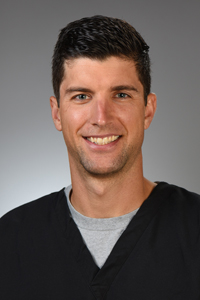
Dr. Rob Bowers practiced in the Indian Health Service from 2016 to 2020 serving as the Dental Director at the Meskwaki Health Clinic in Tama, IA while also serving as an adjunct faculty member in the Department of Family Dentistry since 2016. Dr. Bowers joined Family Dentistry in December 2020 as an Assistant Professor and teaches in the student clinics and is involved with the intramural dental practice in the Department of Family Dentistry. Dr. Bowers’ research activities involve the management of dental fear with a focus on local anesthesia techniques and chemo-pharmaceutical management of dental caries.
Promoting Patient-Centered Care
Presentation: Dr. Michelle McQuistan
Course Description:
Providing patient-centered care involves identifying patients’ individual preferences, needs, and values. It is important for the dental team to create opportunities for patients’ voices to be heard. However, many things can inadvertently impact the conversation between patients and providers, thus impacting providers’ recommendations and patients’ decisions.
Learning Objectives:
At the completion of this program, participants should be able to:
Recognize how personal characteristics may influence patient-provider interactions;
Explore how communication styles can lead to patient-provider misunderstanding; and
Discuss strategies to enhance patient-centered care.
Instructor:
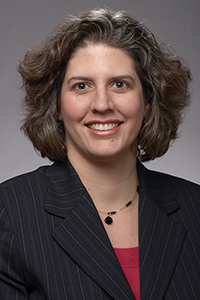
Dr. Michelle McQuistan (’01 DDS, ’04 MS) is an Associate Professor in the Department of Preventive and Community Dentistry and the Officer for Diversity, Equity, and Inclusion. She is a Diplomate, American Board of Dental Public Health, and she served as the President of the American Association of Public Health Dentistry. She was the extramural program director for more than10 years and has served as the course director for several pre-doctoral and graduate courses. Additionally, she supervises D4 students in the Geriatrics and Special Needs clinic. Her research interests include health literacy and access to care for underserved populations.
Waistline to the Gumline: Implications of Obesity for Dentistry
Presentation: Dr. Sukirth Ganesan
Course Description:
Obesity is a worldwide health burden, affecting more than 40% of the adult population. With an alarming rise in the number of overweight and obese patients in the state of Iowa and the established association that exists between obesity and poor oral health (periodontal disease specifically), it is essential for oral health professionals to understand management considerations for this population. This course will discuss the fundamental links between obesity and periodontal disease, manifestations in the oral cavity, potential complications, and practical treatment considerations for treating this cohort.
Learning Objectives:
At the completion of this program, participants should be able to:
Summarize the definition, classification and prevalence of obesity;
Explain the mechanism behind oral complications in obese patients; and
Recognize the practical implications and treatment considerations associated with obesity in the dental office.
Instructor:
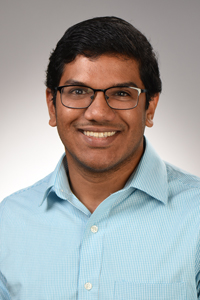
Dr. Sukirth Ganesan is an assistant professor in the department of Periodontics and the Director of the Residency Program. Prior to his move to the University of Iowa, Dr. Ganesan completed his Ph.D. and certificate in periodontics at the Ohio State University and a post-doctoral fellowship at the National Institutes of Health. He is a member of the Fraternal order of Eagles Diabetes Research Center and Holden Comprehensive Cancer Center, and University of Iowa Hospital and Clinics.
Child Abuse and Neglect: What Should We Be Looking For in the Dental Clinic?*
Presentation: Dr. Polly Iben
Course Description:
Child abuse and neglect has immediate and long term effects on the victims and society as a whole. It’s a growing problem in America that crosses all racial, ethnic, geographic, gender, and economic lines to some extent. The dental community can play a crucial role in the detection and reporting of child abuse and dental neglect, including child trafficking. This course discusses the many types of child abuse and neglect, examines how the COVID-19 pandemic has impacted the incidence of abuse in Iowa, and outlines the obligation we have to our young patients as mandatory reporters in the dental clinic.
*This lecture DOES NOT satisfy the Iowa child and dependent adult abuse (Mandatory Reporter) CE courses. This lecture is for continuing education ONLY.
Learning Objectives:
At the completion of this program, participants should be able to:
Summarize what constitutes dental neglect; and
Recognize the five main types of child abuse when communicating with dental patients in the clinic.
Instructor:
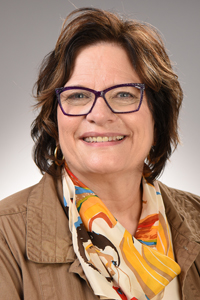
Dr. Polly Iben opened her Pediatric Dentistry private practice in 1999 in Coralville, IA. She was an Adjunct Faculty Professor in the Pediatric Dentistry Department from 2000-2018. She sold her practice and joined the UI College of Dentistry as a Clinical Assistant Professor in 2020. Dr. Iben is a Predoctoral and postdoctoral lecturer and clinical instructor. Dr. Iben is the director of the senior pediatric dentistry rotation, in which fourth-year dental students rotate through pediatric dental clinics at the UI College of Dentistry, the Community Health Center in Muscatine, and the Johnson County WIC clinic. She also sees private patients one day a week at the Center for Disabilities and Development. Dr. Iben’s current research areas include Silver Diamine Fluoride effectiveness in slowing or stopping dental caries progression, and the impact COVID-19 is having on Iowa’s dental practitioners.
A Review of Indications and Considerations for Full Mouth Rehabilitation
Presentation: Dr. Ahmed Mahrous
Course Description:
This lecture describes the conditions that lead to loss of vertical dimension, and the considerations for restoring patients with loss of vertical dimension of occlusion.
Learning Objectives:
At the completion of this program, participants should be able to:
Identify the indications for a full mouth rehabilitation;
Paraphrase the factors that lead to loss of vertical dimension of occlusion; and
xplain the considerations that apply when restoring patients with loss of vertical dimension.
Instructor:
Dr. Ahmed Mahrous received his B.D.S. from Pharos University College of Dentistry (Egypt) in 2011. In 2016, he received his M.S. in prosthodontics from Iowa and also became an assistant professor in the Department of Prosthodontics. In 2018 and 2019, dental students awarded Dr. Mahrous D2 Faculty of the Year and D3 Faculty of the Year. In 2019, he was also recognized as "Faculty of All Four Years." Dr. Mahrous is the director for the Removable Partial Denture (RPD) course for D2 and graduate students. He is also a clinical instructor and lecturer for the D3 clerkship as well as all pre-clinical (D1) prosthodontics classes. Dr. Mahrous' primary activities in the College of Dentistry faculty practice include the diagnosis and interdisciplinary treatment of patients requiring fixed, removable and/or implant-supported prostheses. Dr. Mahrous' research is focused on implementation of digital dentistry in education and clinical practice.
Common Mental Health Disorders in Oral Healthcare Settings and Strategies for Patient Care
Presentation: Ms. Cari Anderson
Course Description:
Research indicates that individuals with mental illness and mental health disorders have poorer oral and physical health than the general populations. Research also indicates that individuals with mental health disorders have reduced rates of compliance with dental and medical treatments. This seminar seeks to help oral health providers gain a deeper understanding of common mental health disorders that may be impacting their patients care and treatment compliance as well as learn strategies to improve communication and care to these patients.
Learning Objectives:
At the completion of this program, participants should be able to:
Identify common mental health disorders and conditions commonly seen in Oral Health Care settings and their impact on patient behaviors and communication styles;
Assess additional issues related to some of these disorders such as course/prognosis, prevalence, differential diagnosis, culture, associated features and their impact on patient behaviors and care; and
Recognize strategies for effective communication and treatment of patients in oral health settings suffering from these mental health disorders and conditions.
Instructor:
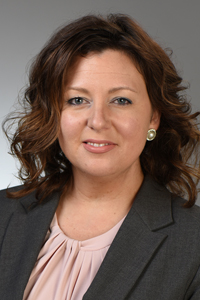
Ms. Cari Anderson is a licensed clinical social worker who has been a staff therapist with University Counseling Service since 2015. Cari is strongly committed to student and college health and wellness at the College of Dentistry. Cari is also a trained consultant who also works with students and student groups to identify and work towards more effective personal, interpersonal, and organizational group functioning.
